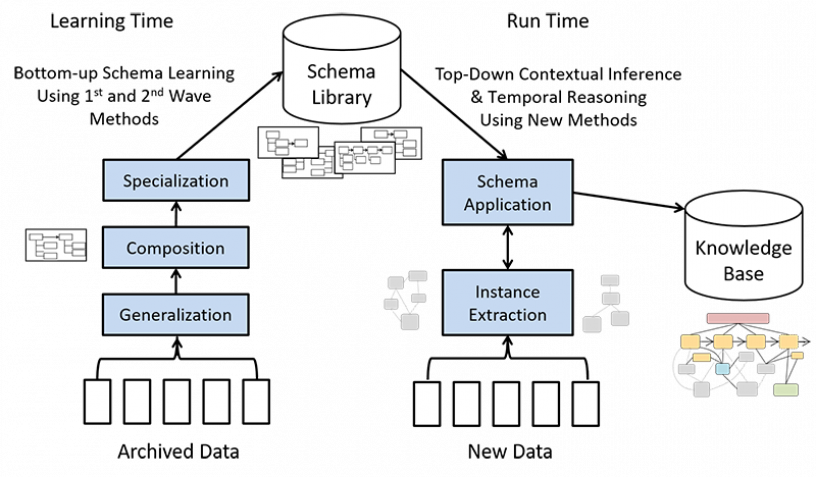Summary

Rapid comprehension of world events is essential for informing U.S. national security - a task that becomes more difficult as the amount of unstructured, multimedia information grows exponentially. Humans make sense of events by organizing them into narrative structures that occur frequently.
These structures are abstracted into schemas, which are organized units of knowledge that represent a pattern of memory used in human cognition. First-wave, or rule-based, symbolic reasoning, AI systems that incorporated hand-crafted schemas were unable to scale when matching those schemas to real-world data. Second-wave, or machine learning, AI systems require far too many manually-produced, annotated examples as training data for supervised machine learning methods to be practical.
The Knowledge-directed Artificial Intelligence Reasoning Over Schemas (KAIROS) program seeks to develop a schema-based AI system that can identify complex events and bring them to the attention of users. KAIROS aims to understand complex events described in multimedia inputs by developing a semi-automated system that identifies, links, and temporally sequences their subsidiary elements, the participants involved, as well as the complex event type. Events of interest either create changes that have significant impact on national security or participate in causal chains that produce such impacts.
The KAIROS program seeks to overcome the scaling limitations of prior approaches in two stages. As shown in the figure below, the first stage entails the development of automated approaches for learning schemas from big data, and the second stage focuses on the development of automated technologies that apply these schemas to multi-media/multilingual information to discover and extract complex events of interest to KAIROS users.
A KAIROS Proposers Day was held January 9, 2019 in Arlington, VA.
This program is now complete
This content is available for reference purposes. This page is no longer maintained.
